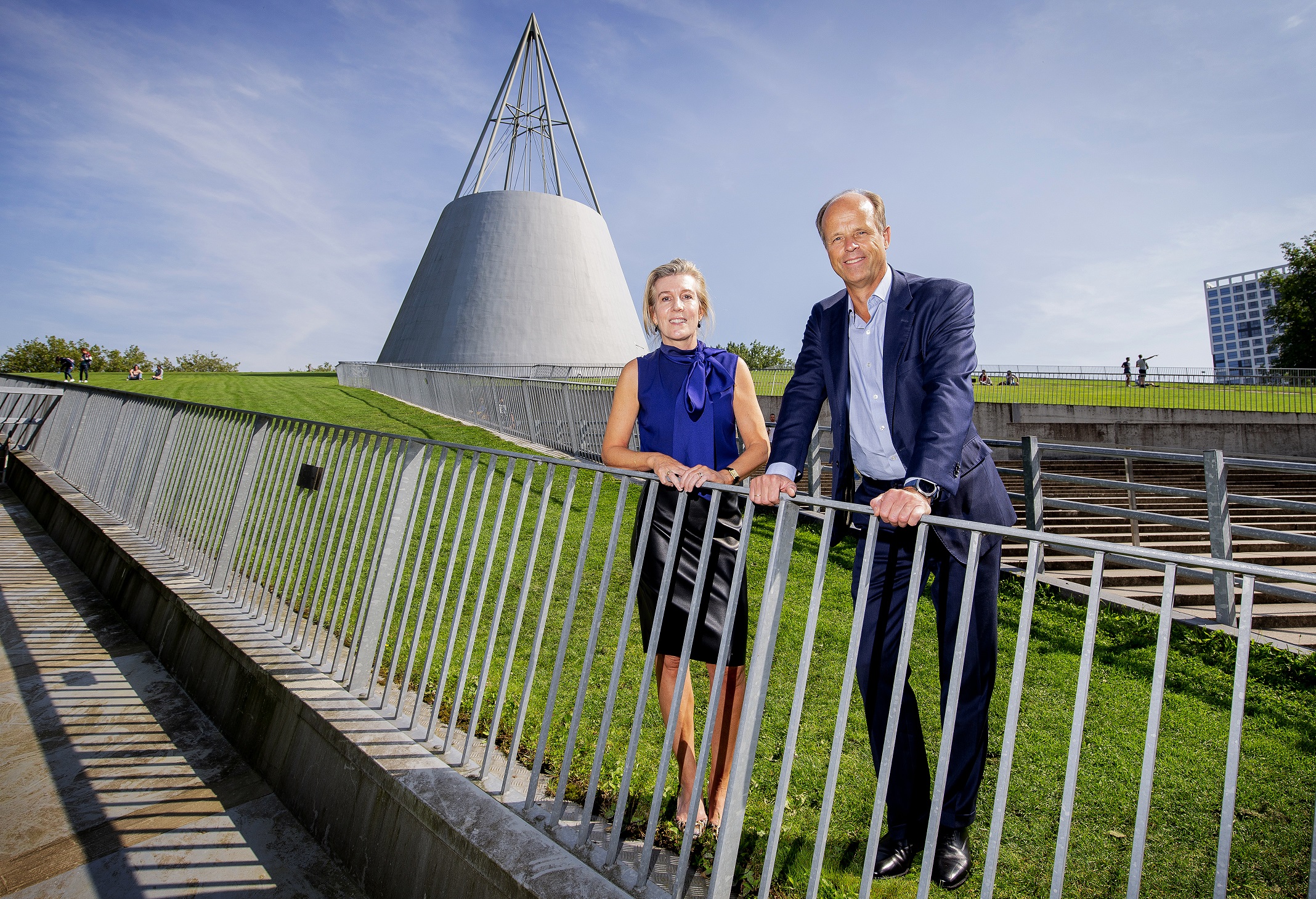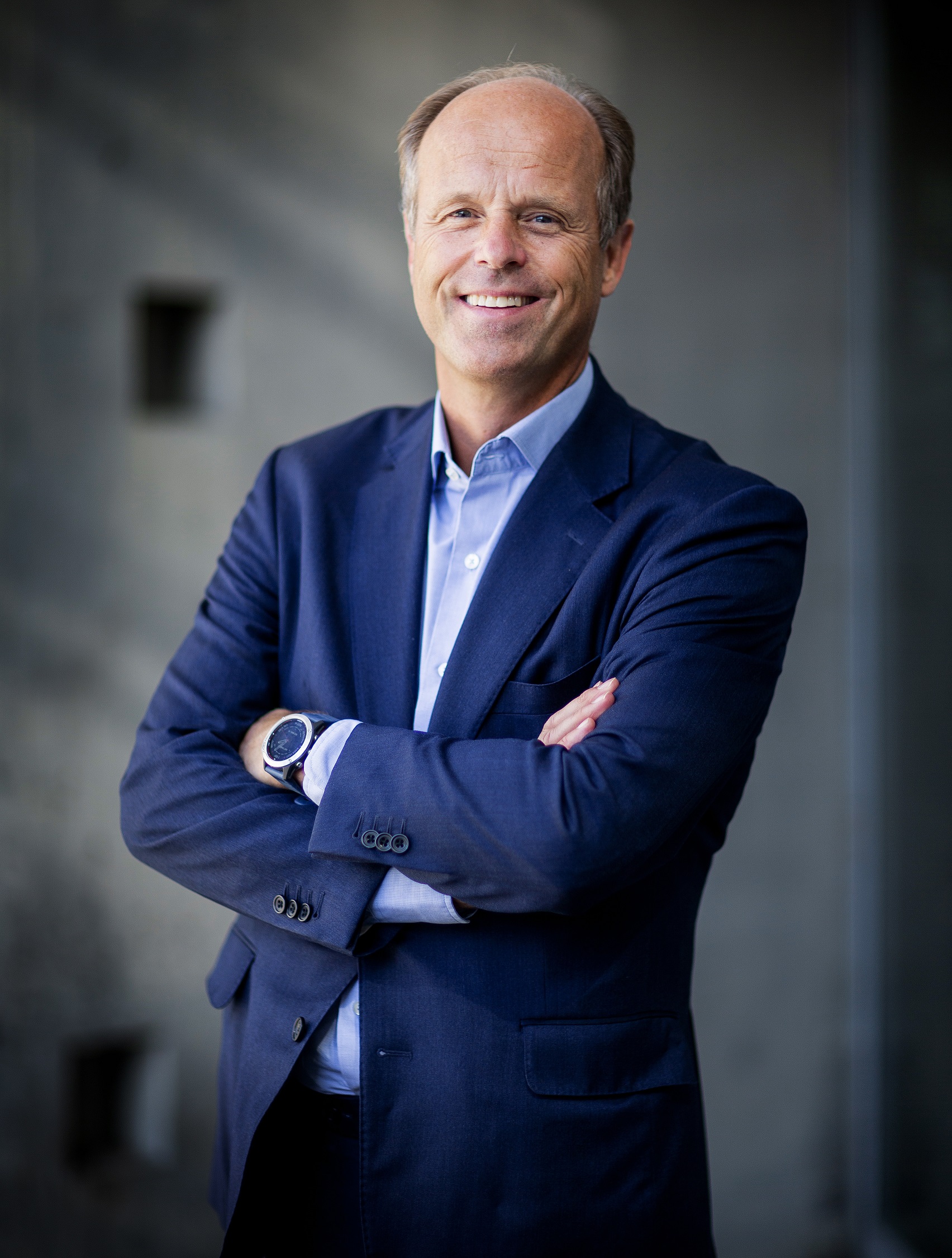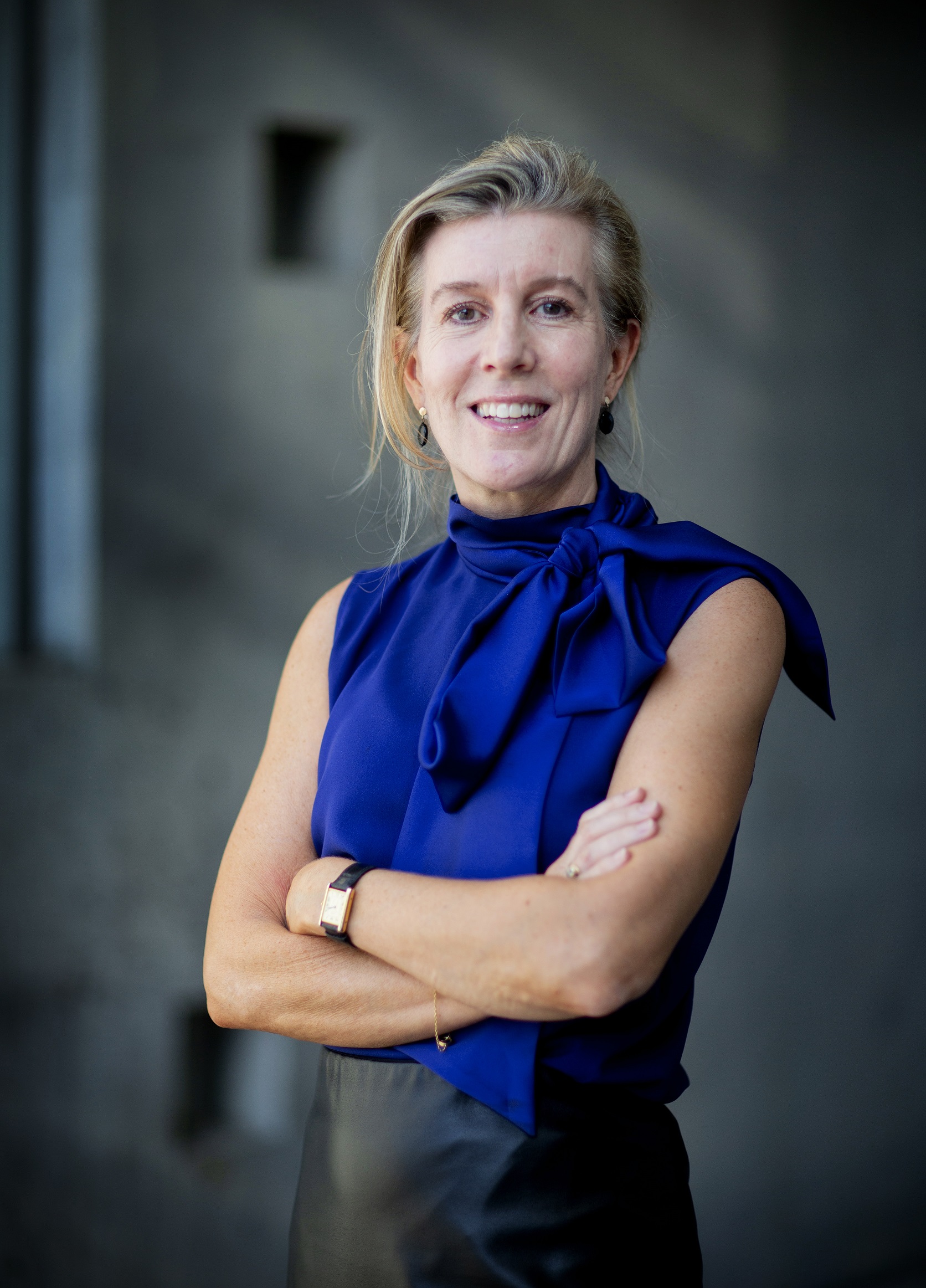‘The Executive Board does the real work’
This year saw two alumni join the TU Delft Supervisory Board: Heleen Wachters and Tijo Collot d’Escury. What is their take on TU Delft, then and now?
This is not a job that you can just apply for. “A list is compiled based on profiles and you are approached”, explains Tijo Collot d’Escury, Chair of the Supervisory Board since 1 July. “It’s really nice to be asked and most people will say yes”, adds Heleen Wachters, a member since 1 January. After accepting, there are interviews with the Works Council and the Student Council, followed by the official appointment by the Minister of Education, Culture and Science.
We’ve already had our first meetings. “There are plenty of issues under discussion. Before the first meeting, I was sent around a thousand pages of documents that you have to read through, especially at the start”, says Wachters. “You often have to do that in the evening or weekends, but if you enjoy it, that's no problem.” Collot d’Escury had been involved in TU activities for a while, including as a member of the Delft University Fund board. “I’m happy to do that, as I’m eager to give something back to the university.” He was at the beginning of Graduate Entrepreneur, an alliance of student start-ups from Delft and Rotterdam, and he co-founded the Excellence Fund, that brings leading international academics to Delft.
Being the Chair of the Supervisory Board will bring him closer to the everyday workings of TU Delft, although he is keen to stress that they have no desire to step into the Executive Board's shoes. “We have a very capable EB in charge of day-to-day management that represents the organisation to the outside world. That’s the real work.” The Supervisory Board's role involves contributing to university strategy and appointing new EB members. It also checks that government funds are spent responsibly. Wachters: “In practice, we serve mainly as a sounding board in terms of suggesting ideas and asking critical questions. For example, your experience tells you whether something involves certain risks or where additional expertise may be necessary.”
Balanced team
There is plenty of experience in the Supervisory Board. Collot d’Escury is a partner in consultancy firm Roland Berger and one of the founders of its Dutch arm. Wachters is a partner in the organisation for freelance consultants Eden McCallum and co-founded the Dutch branch. Although a consultancy background is definitely useful within the board, its power lies in the composition of the team: “In Luc de Soete, we have someone with administrative experience in the academic world, Caroline Gehrels has a civil-society background and Gijsbert de Zoeten is from the world of business. It’s a balanced team with people from a range of different fields”, says Wachters.
Major themes
Together, they are tackling the major themes for the years ahead. “The huge increase in student numbers is likely to continue. It’s a good thing, but also brings challenges with it. The coronavirus crisis creates operational challenges, but also impacts on student welfare”, says Collot d’Escury. “It’s definitely an interesting time for a university of technology. There’s so much happening in areas like sustainability, energy, AI, bionanotechnology, etc. Delft is leading the way. It's great to be able to make a modest contribution to that.” Wachters is enthusiastic about the campus strategy.
“An extensive plan is in place for new buildings and renovations over the next decade, in which sustainability features prominently. That appeals to me, as a civil engineer. What we intend to do is amazing, but also complex. For example, will we adapt the strategy in line with the new ways of teaching and more remote working?”
They both have fond memories of their time on campus. “I was really impressed by the place, with its wind tunnels, nuclear reactor and towing tanks. But it could get very wild. First-year chemistry students, like me, worked in the lab on Thursdays and Fridays. There’d usually been some partying the night before, so not all students were totally on the ball. The lab assistant was outraged when yet another experiment exploded in the fume cupboard”, recounts Collot d’Escury. “I look back at what I learnt in Delft with gratitude. I’m increasingly aware that you don’t actually understand how extraordinary it all is when you’re still a student. Not only what you gain from it, but also the freedom you have to party and join committees – it’s an amazing period in your life.”
Enormous boots
Wachters recalls the laboratory course in soil mechanics that she had to do as a civil engineering student. “Part of it was outside in a field. We did experiments with probes that had to go 10 metres into the ground and then out again. I spent two years as a student teaching assistant on that course with two other girls. We were standing there giving out instructions in enormous boots. It was quite a sight, as there were very few girls here at the time”, she says. “Delft was like one big playground after having to do subjects at school that didn’t interest me that much. I was very keen to do civil engineering. As long as there were numbers involved, I loved it. I’d be happy to choose Delft again, although then I might study maths.”
She also realised later what a difference choosing Delft really made. “It’s later in life that you understand how special a degree from Delft is. It has a reputation for being a serious and thorough programme, that produces very capable graduates. We need to carefully protect that reputation, and, more importantly, help it reach its full potential”, she says. “At Eden McCallum, we’re also very happy to recruit Delft graduates. The skills that you learn here – analysis, devising creative solutions, etc. – are also essential in consultancy, the strength of the TU Delft programmes is clearly evident.”
Ecosystem
Collot d’Escury and Wachters have noticed that a lot has changed since they graduated in the early 1990s. “I took my children to the Open Days which were so bursting with energy that I almost felt like becoming a student again myself”, says Collot d’Escury. “I had my own company as a student, but the university didn’t really encourage it at the time. There was nowhere to go for help. It’s great to see how it’s encouraged now. The entire campus is becoming a wonderful ecosystem with businesses and researchers collaborating.” Wachters agrees: “My son is also involved in a start-up. They enable students to practise skills and you occasionally hit on an idea that actually proves a commercial success. We need to encourage that culture of innovation even more.”
Collot d’Escury can't emphasise enough the importance of a leading university like TU Delft. “We are a prosperous and happy country. Universities play a key role in that. Educating and retaining talent for the Netherlands is still essential. That’s why continuing to be an outstanding university really matters”, he says. Wachters: “We achieve high rankings in that respect, but you need a lot of energy and investment to continue to perform at that level.”
With that in mind, Collot d’Escury makes a renewed call on alumni: “The government contribution has recently been slightly adjusted, but after correction for inflation it basically still reflects the situation from years back although we now have twice as many students. That means we’re increasingly dependent on other sources of funding in order to continue to do special things. As an alumnus, there are all kinds of projects you can support, but we need to increase the involvement of alumni with the university, and vice-versa.” Wachters: “It’s an honour to be asked to make a contribution; I think a lot of people would agree. But not everyone knows how to. There’s room for improvement on that. It’s certainly something we will be revisiting.”


